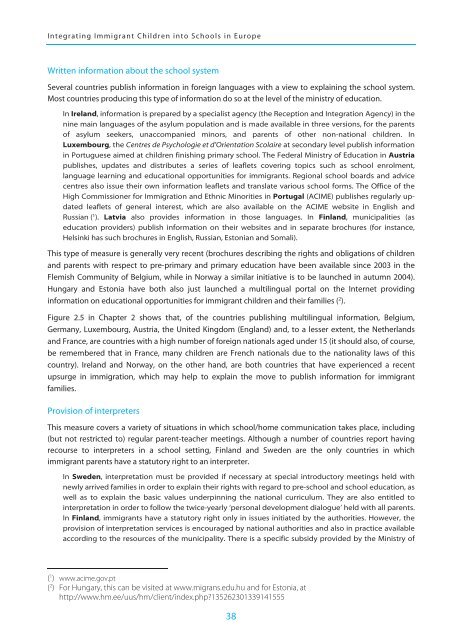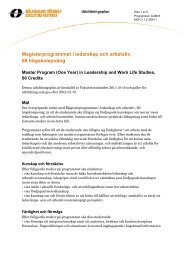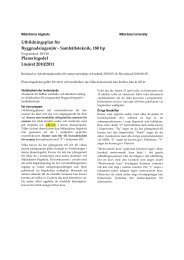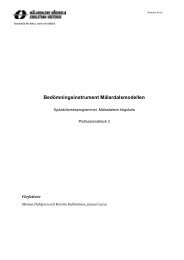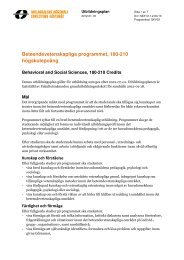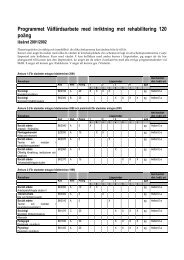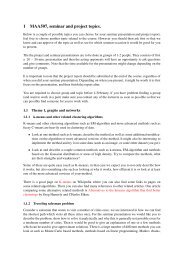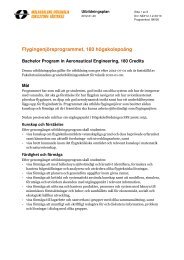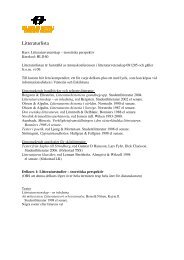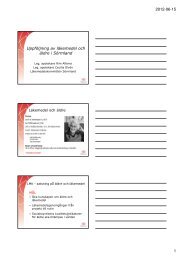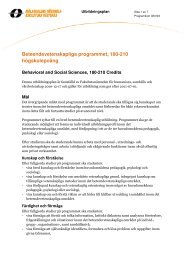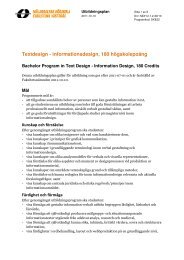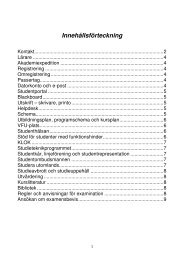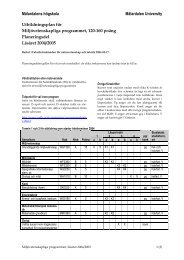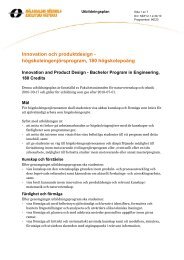Integrating Immigrant Children into Schools in Europe
Integrating Immigrant Children into Schools in Europe
Integrating Immigrant Children into Schools in Europe
Create successful ePaper yourself
Turn your PDF publications into a flip-book with our unique Google optimized e-Paper software.
<strong>Integrat<strong>in</strong>g</strong> <strong>Immigrant</strong> <strong>Children</strong> <strong><strong>in</strong>to</strong> <strong>Schools</strong> <strong>in</strong> <strong>Europe</strong>Written <strong>in</strong>formation about the school systemSeveral countries publish <strong>in</strong>formation <strong>in</strong> foreign languages with a view to expla<strong>in</strong><strong>in</strong>g the school system.Most countries produc<strong>in</strong>g this type of <strong>in</strong>formation do so at the level of the m<strong>in</strong>istry of education.In Ireland, <strong>in</strong>formation is prepared by a specialist agency (the Reception and Integration Agency) <strong>in</strong> then<strong>in</strong>e ma<strong>in</strong> languages of the asylum population and is made available <strong>in</strong> three versions, for the parentsof asylum seekers, unaccompanied m<strong>in</strong>ors, and parents of other non-national children. InLuxembourg, the Centres de Psychologie et d’Orientation Scolaire at secondary level publish <strong>in</strong>formation<strong>in</strong> Portuguese aimed at children f<strong>in</strong>ish<strong>in</strong>g primary school. The Federal M<strong>in</strong>istry of Education <strong>in</strong> Austriapublishes, updates and distributes a series of leaflets cover<strong>in</strong>g topics such as school enrolment,language learn<strong>in</strong>g and educational opportunities for immigrants. Regional school boards and advicecentres also issue their own <strong>in</strong>formation leaflets and translate various school forms. The Office of theHigh Commissioner for Immigration and Ethnic M<strong>in</strong>orities <strong>in</strong> Portugal (ACIME) publishes regularly updatedleaflets of general <strong>in</strong>terest, which are also available on the ACIME website <strong>in</strong> English andRussian ( 1 ). Latvia also provides <strong>in</strong>formation <strong>in</strong> those languages. In F<strong>in</strong>land, municipalities (aseducation providers) publish <strong>in</strong>formation on their websites and <strong>in</strong> separate brochures (for <strong>in</strong>stance,Hels<strong>in</strong>ki has such brochures <strong>in</strong> English, Russian, Estonian and Somali).This type of measure is generally very recent (brochures describ<strong>in</strong>g the rights and obligations of childrenand parents with respect to pre-primary and primary education have been available s<strong>in</strong>ce 2003 <strong>in</strong> theFlemish Community of Belgium, while <strong>in</strong> Norway a similar <strong>in</strong>itiative is to be launched <strong>in</strong> autumn 2004).Hungary and Estonia have both also just launched a multil<strong>in</strong>gual portal on the Internet provid<strong>in</strong>g<strong>in</strong>formation on educational opportunities for immigrant children and their families ( 2 ).Figure 2.5 <strong>in</strong> Chapter 2 shows that, of the countries publish<strong>in</strong>g multil<strong>in</strong>gual <strong>in</strong>formation, Belgium,Germany, Luxembourg, Austria, the United K<strong>in</strong>gdom (England) and, to a lesser extent, the Netherlandsand France, are countries with a high number of foreign nationals aged under 15 (it should also, of course,be remembered that <strong>in</strong> France, many children are French nationals due to the nationality laws of thiscountry). Ireland and Norway, on the other hand, are both countries that have experienced a recentupsurge <strong>in</strong> immigration, which may help to expla<strong>in</strong> the move to publish <strong>in</strong>formation for immigrantfamilies.Provision of <strong>in</strong>terpretersThis measure covers a variety of situations <strong>in</strong> which school/home communication takes place, <strong>in</strong>clud<strong>in</strong>g(but not restricted to) regular parent-teacher meet<strong>in</strong>gs. Although a number of countries report hav<strong>in</strong>grecourse to <strong>in</strong>terpreters <strong>in</strong> a school sett<strong>in</strong>g, F<strong>in</strong>land and Sweden are the only countries <strong>in</strong> whichimmigrant parents have a statutory right to an <strong>in</strong>terpreter.In Sweden, <strong>in</strong>terpretation must be provided if necessary at special <strong>in</strong>troductory meet<strong>in</strong>gs held withnewly arrived families <strong>in</strong> order to expla<strong>in</strong> their rights with regard to pre-school and school education, aswell as to expla<strong>in</strong> the basic values underp<strong>in</strong>n<strong>in</strong>g the national curriculum. They are also entitled to<strong>in</strong>terpretation <strong>in</strong> order to follow the twice-yearly ‘personal development dialogue’ held with all parents.In F<strong>in</strong>land, immigrants have a statutory right only <strong>in</strong> issues <strong>in</strong>itiated by the authorities. However, theprovision of <strong>in</strong>terpretation services is encouraged by national authorities and also <strong>in</strong> practice availableaccord<strong>in</strong>g to the resources of the municipality. There is a specific subsidy provided by the M<strong>in</strong>istry of( 1 ) www.acime.gov.pt( 2 ) For Hungary, this can be visited at www.migrans.edu.hu and for Estonia, athttp://www.hm.ee/uus/hm/client/<strong>in</strong>dex.php?13526230133914155538


